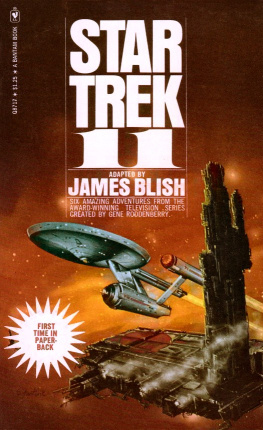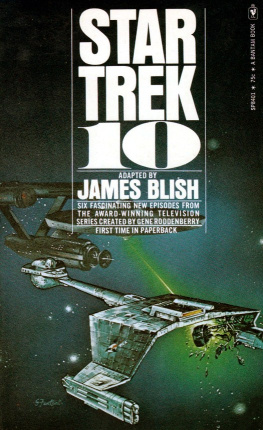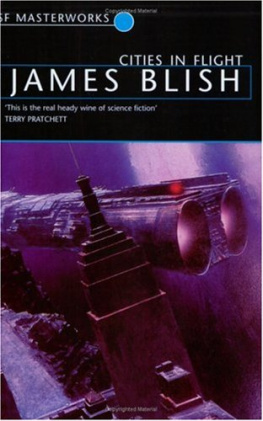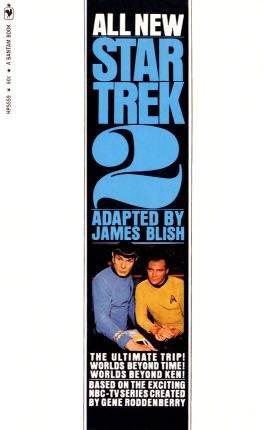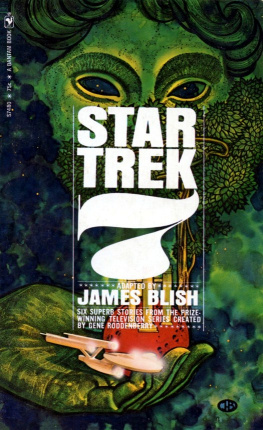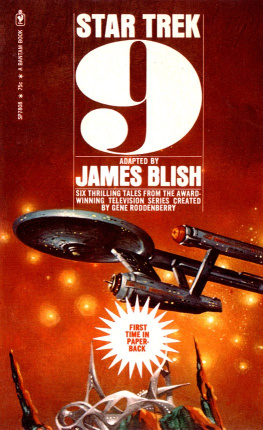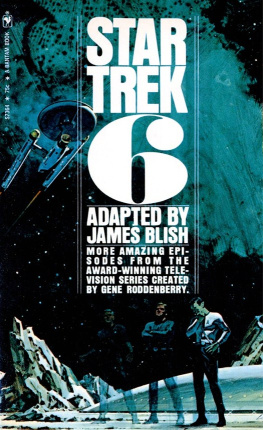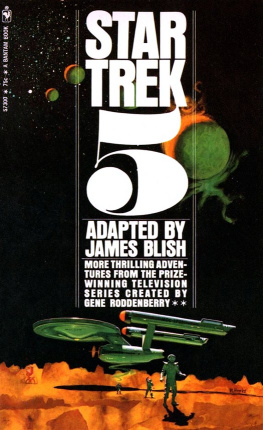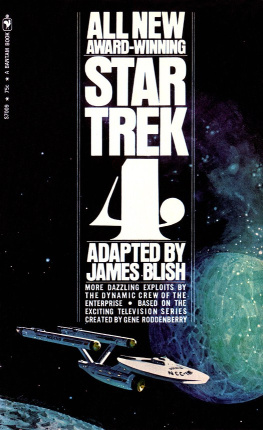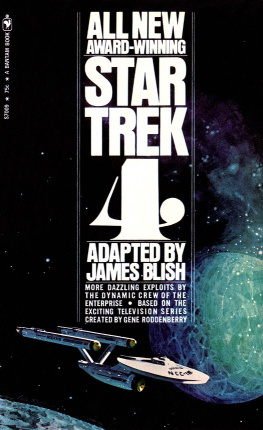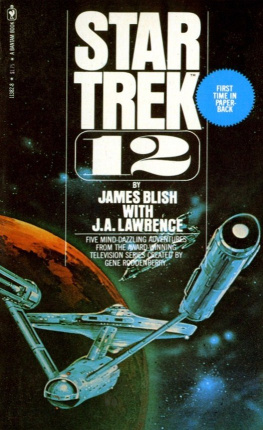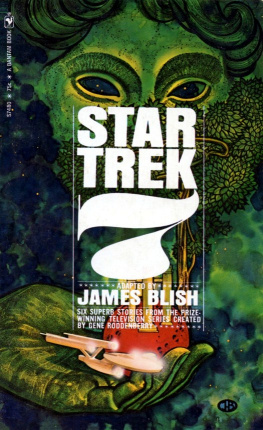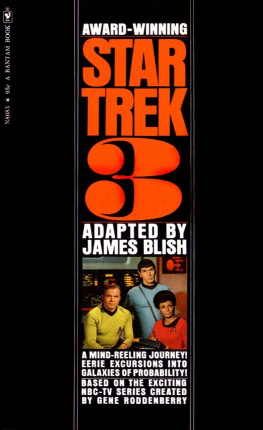James Blish - Earthman, Come Home
Here you can read online James Blish - Earthman, Come Home full text of the book (entire story) in english for free. Download pdf and epub, get meaning, cover and reviews about this ebook. year: 1955, publisher: Putnam, genre: Detective and thriller. Description of the work, (preface) as well as reviews are available. Best literature library LitArk.com created for fans of good reading and offers a wide selection of genres:
Romance novel
Science fiction
Adventure
Detective
Science
History
Home and family
Prose
Art
Politics
Computer
Non-fiction
Religion
Business
Children
Humor
Choose a favorite category and find really read worthwhile books. Enjoy immersion in the world of imagination, feel the emotions of the characters or learn something new for yourself, make an fascinating discovery.
- Book:Earthman, Come Home
- Author:
- Publisher:Putnam
- Genre:
- Year:1955
- Rating:3 / 5
- Favourites:Add to favourites
- Your mark:
- 60
- 1
- 2
- 3
- 4
- 5
Earthman, Come Home: summary, description and annotation
We offer to read an annotation, description, summary or preface (depends on what the author of the book "Earthman, Come Home" wrote himself). If you haven't found the necessary information about the book — write in the comments, we will try to find it.
Earthman, Come Home — read online for free the complete book (whole text) full work
Below is the text of the book, divided by pages. System saving the place of the last page read, allows you to conveniently read the book "Earthman, Come Home" online for free, without having to search again every time where you left off. Put a bookmark, and you can go to the page where you finished reading at any time.
Font size:
Interval:
Bookmark:
Earth man Come Home
Copyright, 1955, by James Blish.
EARTHMAN,
COME
HOME
To John W. Campbell, Jr.
CHAPTER ONE: Utopia
AS John Amalfi emerged onto the narrow, worn granite ledge with its gritty balustrade, his memory encountered one of those brief boggles over the meaning of a word which had once annoyed him constantly, like a bubble in an otherwise smoothly blown French horn solo. Such moments of confusion were very rare now, but they were still a nuisance.
This time he found himself unable to decide on a name for where he was going at the moment. Was it a belfry, or was it a bridge?
It was, of course, only a matter of simple semantics, depending, as the oldest saying goes, on the point of view. The ledge ran around the belfry of City Hall. The city, however, was a spaceship, much of which was sometimes operated from this spot, and from which Amalfi was accustomed to assess the star-seas that the city sailed. That made it a bridge. But the ship was a city, a city of jails and playgrounds, alleys and alley cats, and there was even one bell still in the belfry, though it no longer had a clapper. The city was still called New York, N.Y., too, but that, the old maps showed, was misleading; the city aloft was only Manhattan, or New York County.
Amalfi's step across the threshold struck the granite without perceptible interruption. The minute dilemma was familiar: he had been through others of its kind often in the years immediately after the city had taken to the skies. It was hard to decide the terms in which one thought about customary things and places after they had become utterly transformed by space flight. The difficulty was that, although the belfry of City Hall still looked much as it had in 1850, it was now the bridge of a spaceship, so that neither term could quite express what the composite had become.
Amalfi looked up. The skies, too, looked about as they must have in 1850 on a very clear night. The spindizzy screen which completely englobed the flying city was itself invisible, but it would pass only elliptically polarized light, so that it blurred the points which were stars seen from space, and took them down in brilliance about three magnitudes to boot.
Except for the distant, residual hum of the spindizzies themselvescertainly a much softer noise than the composite traffic roar which had been the city's characteristic tone back in the days before cities could flythere was no real indication that the city was whirling through the emptiness between stars, a migrant among migrants.
If he chose, Amalfi could remember those days, since he had been mayor of the cityalthough only for a short timewhen the City Fathers had decided that it was time to go aloft. That had been in 3111, decades after every other major city had already left the Earth; Amalfi had been just 117 years old at the time. His first city manager had been a man named deFord, who for a while had shared Amalfi's amused puzzlement about what to call all the familiar things now that they had turned strangebut deFord had been shot by the City Fathers" around 3300 for engineering an egregious violation of the city's contract with a planet called Epoch, which had put a black mark on the city's police record which the cops still had not forgotten.
The new city manager was a youngster less than 400 years old named Mark Hazleton, who was already as little loved by the City Fathers as deFord had been and for about the same reasons, but who had been born after the city had gone aloft and hence had no difficulty in finding the appropriate words for things. Amalfi was prepared to believe that he was the last living man on board the flying city who still had occasional bubbles blown into his stream of consciousness by old Earthbound habits of thinking.
In a way, Amalfi's clinging to City Hall as the center of operations for the city betrayed the mayor's ancient ties to Earth. City Hall was the oldest building on board, and so only a few of the other structures could be seen from it. It wasn't tall enough, and there were too many newer buildings around it. Amalfi didn't care. From the belfryor bridge, if that was what he had to call it nowhe never looked in any direction but straight up, his head tilted all the way back on his bull neck. He had no reason to look at the buildings around Battery Park, after all. He had already seen them.
Straight up, however, was a sun, surrounded by starry sable. It was close enough to show a perceptible disc, and becoming slowly larger. While Amalfi watched it, the microphone in his hand began to emit intermittent squawks.
"It looks good enough to me," Amalfi said, lowering his bald head grudgingly a centimeter or two toward the mike. "It's a type G star, or near to it, and Jake in Astronomy says two of the planets are Earthlike. And Records says that both of 'em are inhabited.
Where there's people, there's work."
The phone quacked anxiously, each syllable evenly weighted, but without any over-all sense of conviction. Amalfi listened impatiently. Then he said, "Politics."
The way he said it made it sound fit only to be scrawled on sidewalks. The phone was silenced; Amalfi hung it on
its hook on the railing and thudded back down the archaic stone steps which led from the belfry/bridge.
Hazleton was waiting for him in the mayor's office, drumming slim fingers upon the desk top. The current city manager was an excessively tall, slender, disjointed sort of man.
Something in the way his limbs were distributed over Amalfi's chair made him also look lazy. If taking devious pains was a sign of laziness, Amalfi was quite willing to call Hazleton the laziest man in the city.
Whether he was lazier than anybody outside the city didn't matter. Nothing that went on outside the city was of real importance any more.
Hazleton said, "Well?"
"Well enough." Amalfi grunted. "It's a nice yellow dwarf star, with all the fixings."
"Sure," Hazleton said with a wry smile. "I don't see why you insist on taking a personal look at every star we go by. There are screens right here in the office, and the City Fathers have all the data. We knew even before we could see this sun what it was like."
"I like a personal look," said Amalfi. "I haven't been mayor here for five hundred years for nothing. I can't really tell about a sun until I see it with my own eyes. Then I know. Images don't mean a thingno feel to "em."
"Nonsense," Hazleton said, without malice. "And what does your feelership say about this one?"
"It's a good sun; I like it. We'll land."
"All right, suppose I tell you what's going on out there?"
"I know, I know," Amalfi said. His heavy voice took on a finicky, nervous tone, his own exaggerated version of the mechanical speech of the City Fathers. '"THE POLITICAL
SIT-UATION IS VER-Y DISTURBING.' It's the food situation that I'm worried about."
"Oh? Is it so bad, then?"
"It's not bad yet. It will be, unless we land. There's been another mutation in the Chlorella tanks; must have started when we passed through that radiation field near Sigma Draconis. We're getting a yield of about twenty-two hundred kilograms per acre in terms of fats."
"That's not bad."
"Not bad, but it's dropping steadily, and the rate of decrease is accelerating. If it's not arrested, we won't have
any algae crops at all in a year or so. And there's not enough crude-oil reserve to tide us over to the next nearest star. We'd hit there eating each other."
Hazleton shrugged. "That's a big if, boss," he said. "We've never had a mutation we couldn't get under control before. And it's very nasty on those two planets."
"So they're having a war. We've been through that kind of situation before. We don't have to take sides. We land on the planet best suited"
"If it were an ordinary interplanetary squabble, okay. But as it happens, one of those worldsthe third from the sunis a sort of free-living polyp of the old Hruntan Empire, and the inner one is a survivor of the Hamiltoni-ans. They've been fighting for a century, on and off, without any contact with Earth. Nowthe Earth's found them."
Next pageFont size:
Interval:
Bookmark:
Similar books «Earthman, Come Home»
Look at similar books to Earthman, Come Home. We have selected literature similar in name and meaning in the hope of providing readers with more options to find new, interesting, not yet read works.
Discussion, reviews of the book Earthman, Come Home and just readers' own opinions. Leave your comments, write what you think about the work, its meaning or the main characters. Specify what exactly you liked and what you didn't like, and why you think so.


